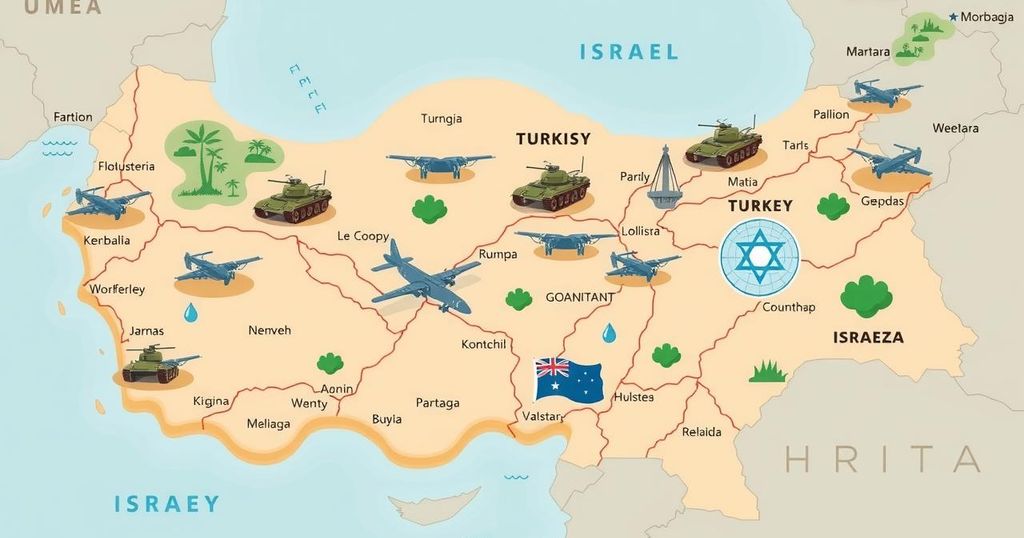Turkey has blocked Israel from NATO’s military drill focusing on emergency preparedness, despite NATO’s support for Israeli involvement. This action reflects Turkey’s adversarial stance towards Israel, aligning more with Hamas and the Palestinian Authority. Turkey’s veto hampers NATO’s ability to foster unity and stability within the alliance.
Turkey has effectively barred Israel from participating in NATO’s annual military drill focused on resilience and emergency preparedness, as reported by Israeli media. This decision came after a recent meeting involving NATO’s coordinating team, Bulgaria’s delegation, and Israeli diplomats, where NATO officials showed strong support for Israeli involvement.
The relationship between Turkey and Israel has soured, with Turkey identifying itself as an opponent of the Jewish State and aligning closer with groups like the Hamas organization and the Palestinian Authority. Despite a majority of NATO’s 32 member states favoring Israeli participation, decisions within NATO require unanimous consent, allowing Turkey to enforce its veto.
An Israeli official articulated concerns regarding Turkey’s stance, stating, “Turkey’s position undermines regional cooperation and NATO’s ability to address global challenges.” This official emphasized that Turkey’s actions impede unity and collective security within NATO and do not contribute to the stability of the alliance’s foundational values.
Since the onset of the conflict initiated by Hamas on October 7, 2023, Turkey has consistently blocked all NATO engagements with Israel, including joint exercises and meetings. Currently, Israel maintains an observer status within NATO, highlighting its limited role amid growing geopolitical tensions.
In summary, Turkey’s decision to restrict Israel’s participation in NATO military drills illustrates the complexities and tensions within NATO’s framework. Despite support from most member states for Israeli involvement, Turkey’s veto power hampers NATO’s cooperative efforts and undermines regional stability. The ongoing blockade of interactions illustrates the broader geopolitical challenges faced by alliances in the current international landscape.
Original Source: www.jewishpress.com






